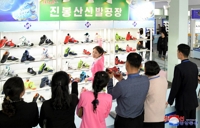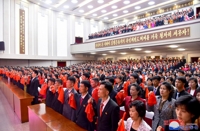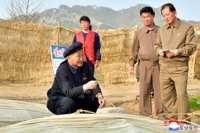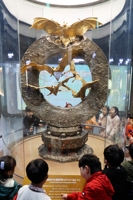(LEAD) U.S. concerned by N. Korea's 'strengthened rhetoric' around its nuclear program: State Dept.
(ATTN: UPDATES with more remarks from the department spokesperson, additional information from 11th para; ADDS photos)
By Byun Duk-kun
WASHINGTON, Aug. 11 (Yonhap) -- The United States is preparing for all contingencies amid signs of a potential North Korean nuclear test but is concerned by Pyongyang's "strengthened rhetoric" around its nuclear program, a state department spokesperson said Thursday.
Vedant Patel, principal deputy spokesperson for the department, said Pyongyang is continuing to prepare for what will be its seventh nuclear test.
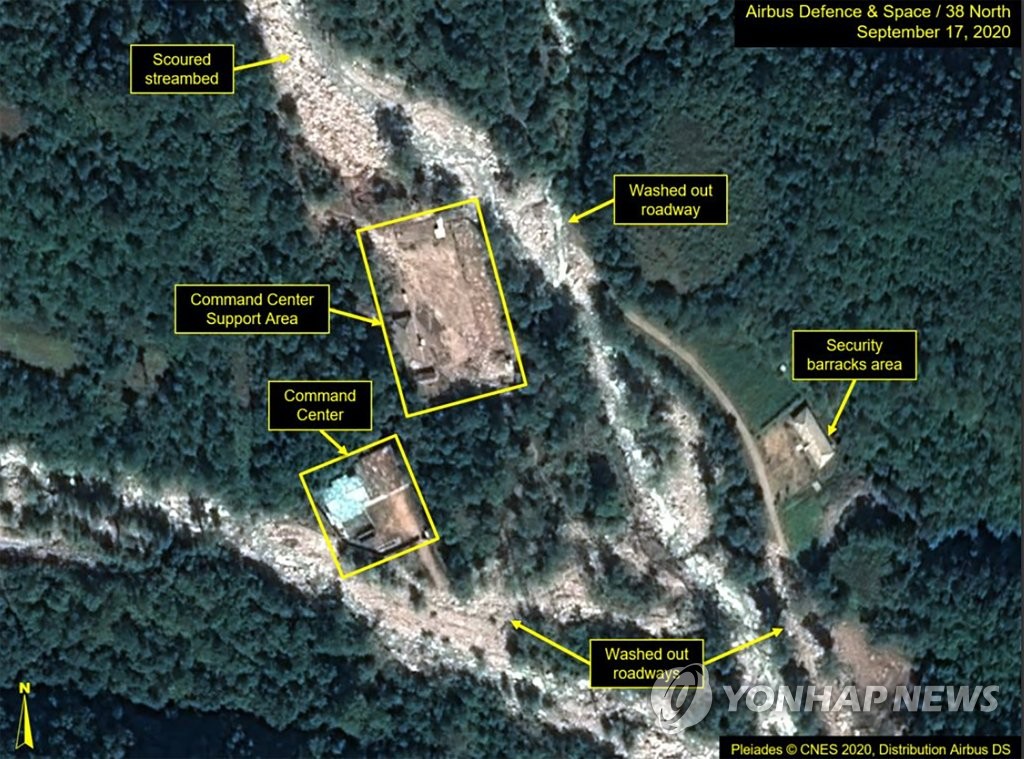
This satellite image, taken by Airbus Defence & Space on Sept. 17, 2020, and released by 38 North on Sept. 25, shows the northern and western side of the Punggye-ri nuclear test site in North Korea's mountainous North Hamkyong Province. (PHOTO NOT FOR SALE) (Yonhap)
"The U.S. assesses the DPRK is preparing its Punggye-ri (nuclear) test site for what would be its seventh nuclear test. This assessment is consistent with the DPRK's own public statements," the spokesperson said in a telephonic press briefing, referring to North Korea by its official name, the Democratic People's Republic of Korea.
"We are preparing for all contingencies in close coordination with our Japanese and ROK allies," Patel added. "Furthermore, we are prepared to make both short and longer term adjustments to our military posture as appropriate in responding to any DPRK provocation."
ROK stands for the Republic of Korea, South Korea's official name.
Seoul and Washington said earlier that the North appeared to have completed "all preparations" for a nuclear test, and that it may only be gauging the timing.
North Korea conducted its sixth and last nuclear test in September 2017.
North Korean leader Kim Jong-un warned his country may use its nuclear weapons against South Korea and the U.S. last month, threatening to "wipe out" the Seoul government and its military should they make what he called a "dangerous move," such as a preemptive strike.
"We are concerned by the regime's strengthened rhetoric around its nuclear program," said the department spokesperson.
"A seventh nuclear test since 2017 would constitute a grave escalatory action, and seriously threaten regional and international stability, as well as security," the spokesperson added.
The department spokesperson also expressed concerns over the health and safety of North Korean people, one day after the North Korean leader declared victory in fight against COVID-19.
"We are very concerned about how COVID-19 could affect the North Korean people and we continue to support the provision of vaccines to the DPRK," the spokesperson said.
Patel urged Pyongyang to work with international aid organizations, noting the North has not accepted any vaccine assistance from the COVAX global vaccine distribution program to date.
"To this end, we strongly support and encourage the efforts of international aid and health organization in seeking to prevent and contain the spread of COVID-19 in the DPRK and to provide other forms of humanitarian assistance to vulnerable groups in the country," he said.
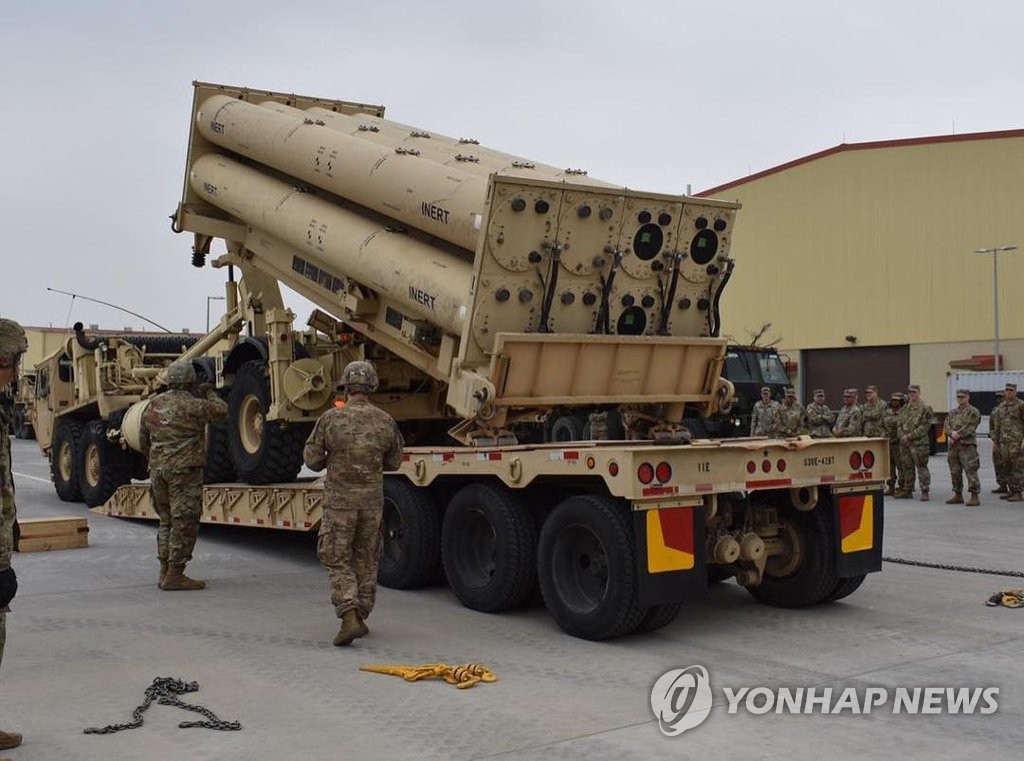
A THAAD launcher is seen in this photo captured from the Facebook account of the 35th Air Defense Artillery Brigade of U.S. Forces Korea (USFK) on April 24, 2019. (Yonhap)
On China's renewed criticism of U.S. THAAD missile defense system deployed in South Korea, the department spokesperson said any such criticism would be "inappropriate."
"The United States and the ROK made an alliance decision to deploy THAAD to the ROK as a purely defensive measure to protect the ROK and its people," said Patel.
"Criticism or pressure on the ROK to abandon its defense is inappropriate," he added.
https://youtu.be/GUPvvQRGhPM
bdk@yna.co.kr
(END)
-
 Ateez member Yunho throws first pitch at MLB match between Dodgers, Mets
Ateez member Yunho throws first pitch at MLB match between Dodgers, Mets -
 Gov't likely to accept university chiefs' request to lower med school enrollment quota
Gov't likely to accept university chiefs' request to lower med school enrollment quota -
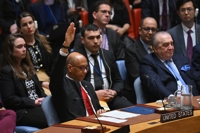 S. Korea supports resolution backing U.N. membership of Palestine
S. Korea supports resolution backing U.N. membership of Palestine -
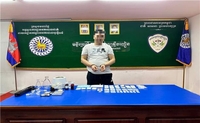 Chinese man behind drug scam targeting teens nabbed in Cambodia
Chinese man behind drug scam targeting teens nabbed in Cambodia -
 S. Korea, U.S. to hold 1st round of defense cost sharing talks this week
S. Korea, U.S. to hold 1st round of defense cost sharing talks this week
-
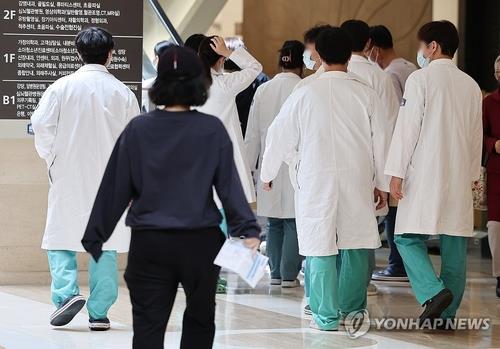 Gov't likely to accept university chiefs' request to lower med school enrollment quota
Gov't likely to accept university chiefs' request to lower med school enrollment quota -
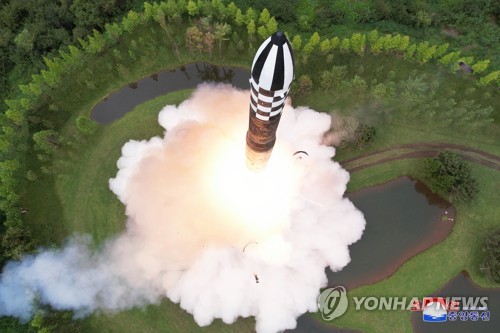 Experts see possibility of N.K. conducting nuclear test before U.S. presidential vote
Experts see possibility of N.K. conducting nuclear test before U.S. presidential vote -
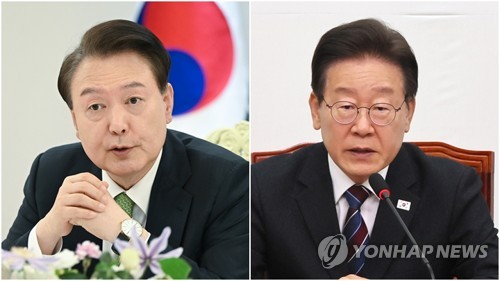 Details of meeting between Yoon, opposition leader undecided: presidential office
Details of meeting between Yoon, opposition leader undecided: presidential office -
 Looming weekly closure of major hospitals feared to worsen medical service crisis
Looming weekly closure of major hospitals feared to worsen medical service crisis -
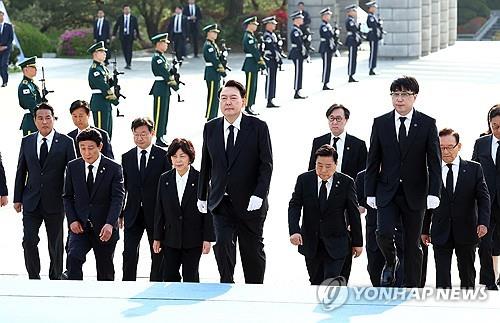 Yoon's approval rating sinks to lowest point since taking office
Yoon's approval rating sinks to lowest point since taking office
-
 (LEAD) Hybe to file complaint against sublabel executives over internal conflict
(LEAD) Hybe to file complaint against sublabel executives over internal conflict -
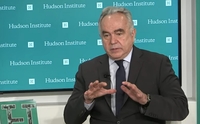 U.S. will take steps for three-way engagement on nuclear deterrence with S. Korea, Japan: Campbell
U.S. will take steps for three-way engagement on nuclear deterrence with S. Korea, Japan: Campbell -
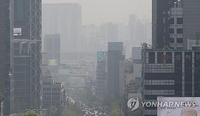 S. Korea reports highest suicide rate, ultra fine dust level among OECD nations: data
S. Korea reports highest suicide rate, ultra fine dust level among OECD nations: data -
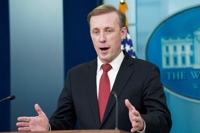 U.S. sent ATACMS missiles to Ukraine following Russia's use of N.K. missiles: White House
U.S. sent ATACMS missiles to Ukraine following Russia's use of N.K. missiles: White House -
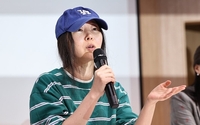 (3rd LD) Hybe to file complaint against sublabel executives over internal conflict
(3rd LD) Hybe to file complaint against sublabel executives over internal conflict















